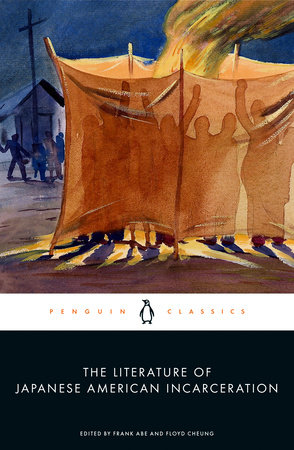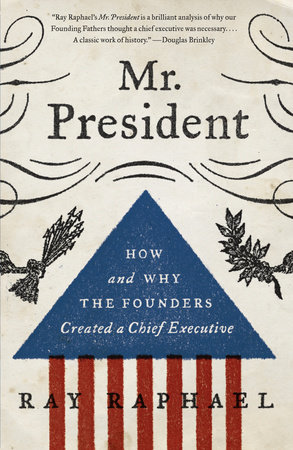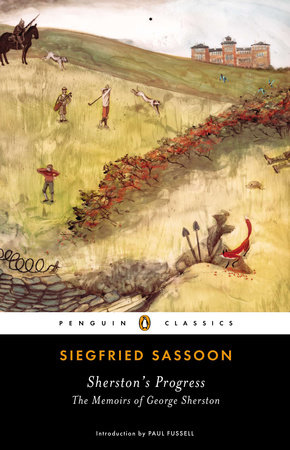

The Literature of Japanese American Incarceration
Introduction by Frank Abe and Floyd Cheung
Edited by Frank Abe and Floyd Cheung
Introduction by Frank Abe and Floyd Cheung
Edited by Frank Abe and Floyd Cheung
Introduction by Frank Abe and Floyd Cheung
Edited by Frank Abe and Floyd Cheung
Introduction by Frank Abe and Floyd Cheung
Edited by Frank Abe and Floyd Cheung
Read by Frank Abe, Keone Young, Ren Hanami, Traci Kato-Kiriyama and Greg Watanabe
Introduction by Frank Abe and Floyd Cheung
Edited by Frank Abe and Floyd Cheung
Read by Frank Abe, Keone Young, Ren Hanami, Traci Kato-Kiriyama and Greg Watanabe
Introduction by Frank Abe and Floyd Cheung
Edited by Frank Abe and Floyd Cheung
Category: Classic Nonfiction | World War II Military History
Category: Classic Nonfiction | World War II Military History
Category: World War II Military History | Audiobooks

-
$20.00
May 14, 2024 | ISBN 9780143133285
-
May 14, 2024 | ISBN 9780525505044
-
May 14, 2024 | ISBN 9780593829233
544 Minutes
Buy the Audiobook Download:
YOU MAY ALSO LIKE

The Book of Murder

The Breast

Mr. President

The Portable Roman Reader

The Cloud Forest

Selected Writings

English Romantic Verse

The Discovery of America by the Turks

Six Yuan Plays
Table Of Contents
Preface by Frank Abe and Floyd Cheung
THE LITERATURE OF JAPANESE AMERICAN INCARCERATION
PART I: BEFORE CAMP
Introduction to Part I
Arrival and Community
1. Henry (Yoshitaka) Kiyama, “Arrival in San Francisco” and “The Turlock Incident”
2. Ayako Ishigaki (as Haru Matsui), “Whither Immigrants”
3. Toshio Mori, “Lil’ Yokohama”
Arrest and Alien Internment
4. Shelley Ayame Nishimura Ota, “Those Airplanes Outside Aren’t Ours”
5. Kamekichi Tokita, “1941 (Showa 16)”
6. John Okada (as Anonymous), “I Must Be Strong”
7. Bunyu Fujimura, “Arrest”
8. Fujiwo Tanisaki, “They Took Our Father Too”
9. Otokichi Ozaki (as Muin Ozaki), “Fort Sill Internment Camp”
10. Yasutaro Soga (as Keiho Soga), “Sand Island and Santa Fe Internment Camps”
11. Iwao Matsushita, “I Can’t Bear to Be Stigmatized as ‘Potentially Dangerous’ ”
Cooperation and Refusal EXECUTIVE ORDER
12. James Omura, “Has the Gestapo Come to America?”
13. Mike Masaoka, “Decision to Cooperate” 50 INSTRUCTIONS TO ALL PERSONS OF JAPANESE ANCESTRY
14. Gordon K. Hirabayashi, “Why I Refuse to Register for Evacuation”
15. Charles Kikuchi, “Kicked Out of Berkeley”
PART II: THE CAMPS
Introduction to Part II
Fairgrounds and Racetracks
16. Monica Sone, “Life in Camp Harmony”
17. Mitsuye Yamada, “Curfew”
18. Portland Senryū Poets, “Resolution and Readiness, Confusion and Doubt”
19. Yoshio Abe, “Lover’s Lane”
Deserts and Swamps RECOMMENDATIONS TO MILTON EISENHOWER, DIRECTOR, WAR
RELOCATION AUTHORITY
20. Lily Yuriko Nakai Havey, “Fry Bread”
21. Toyo Suyemoto, “Barracks Home”
22. Authorship uncertain, “That Damned Fence”
23. Kiyo Sato, “I Am a Prisoner in a Concentration Camp in My Own Country”
24. Masae Wada, “Gila Relocation Center Song”
25. Cherry Tanaka, “The Unpleasantness of the Year”
26. Hiroshi Nakamura, “Alice Hasn’t Come Home”
27. Joe Kurihara, “The Martyrs of Camp Manzanar”
28. Iwao Kawakami, “The Paper”
29. Nao Akutsu, “Send Back the Father of These American Citizens”
Registration and Segregation STATEMENT OF UNITED STATES CITIZEN OF JAPANESE ANCESTRY
30. Topaz Resident Committee, “We Respectfully Ask for Immediate Answers”
31. Kentaro Takatsui, “The Factual Causes and Reasons Why I Refused to Register”
32. Sada Murayama, “Loyalty”
33. Mitsuye Yamada, “Cincinnati”
CONFIDENTIAL STATEMENT TO DILLON MYER, DIRECTOR, WAR RELOCATION AUTHORITY
34. Kazuo Kawai (as Ryōji Hiei), “This Is Like Going to Prison”
35. Noboru Shirai, “The Army Takes Control”
36. Hyakuissei Okamoto, “Several brethren arrested after martial law was declared at Tule Lake in November 1943”
37. Violet Kazue de Cristoforo, “Brother’s Imprisonment”
38. Tatsuo Ryusei Inouye, “Hunger Strike”
39. Bunichi Kagawa, “Geta”
Volunteers and the Draft
40. Minoru Masuda, “A Lonely and Personal Decision”
41. Tamotsu Shibutani, “The Activation of Company K”
42. Toshio Mori, “She Is My Mother, and I Am the Son Who Volunteered”
43. Jōji Nozawa, “Father of Volunteers”
44. Fuyo Tanagi and the Mothers Society of Minidoka, “Petition to President Roosevelt”
45. Yoshito Kuromiya, “Fair Play Committee”
46. Frank Emi and the Fair Play Committee, “We Hereby Refuse . . . In Order to Contest the Issue”
47. Eddie Yanagisako and Kenroku Sumida, “Song of Cheyenne”
Resegregation and Renunciation AN ACT TO PROVIDE FOR LOSS OF UNITED STATES NATIONALITY UNDER CERTAIN CIRCUMSTANCES.
48. Noboru Shirai, “Wa Shoi Wa Shoi, the Emergence of the ‘Headband’ Group”
49. Motomu Akashi, “Badges of Honor”
50. Joe Kurihara, “Japs They Are, Citizens or Not”
51. Hiroshi Kashiwagi, “Starting from Loomis . . . Again”
PART III: AFTER CAMP
Introduction to Part III 223
Resettlement and Reconnection
52. James Takeda (as Bean Takeda), “The Year Is 2045”
53. David Mura, “Internment Camp Psychology”
54. Shizue Iwatsuki, “Returning Home”
55. Toyo Suyemoto, “Topaz, Utah”
56. Janice Mirikitani, “We, the Dangerous”
57. Amy Uyematsu, “December 7 Always Brings Christmas Early”
58. Brian Komei Dempster, “Your Hands Guide Me Through Trains”
59. Christine Kitano, “1942: In Response to Executive Order 9066, My Father, Sixteen, Takes”
Redress
60. Shosuke Sasaki and the Seattle Evacuation Redress Committee, “An Appeal for Action to Obtain Redress for the World War II Evacuation and Imprisonment of Japanese Americans” 247 PERSONAL JUSTICE DENIED, PART 2: RECOMMENDATIONS
61. William Minoru Hohri, “The Complaint”
62. Jeanne Sakata, “Coram Nobis Press Conference” 260 LETTER FROM THE WHITE HOUSE
63. traci kato- iriyama, “No Redress”
Repeating History
64. Perry Miyake, “Evacuation, the Sequel”
65. Fred Korematsu, “Do We Really Need to Relearn the Lessons of Japanese American Internment?”
66. Brandon Shimoda, “We Have Been Here Before”
67. Brynn Saito, “Theses on the Philosophy of History”
68. Frank Abe, Tamiko Nimura, Ross Ishikawa, Matt Sasaki, “Never Again Is Now” 287
Acknowledgments
Suggestions for Further Exploration
About the Authors
Credits and Copyright Notices
21 Books You’ve Been Meaning to Read
Just for joining you’ll get personalized recommendations on your dashboard daily and features only for members.
Find Out More Join Now Sign In













